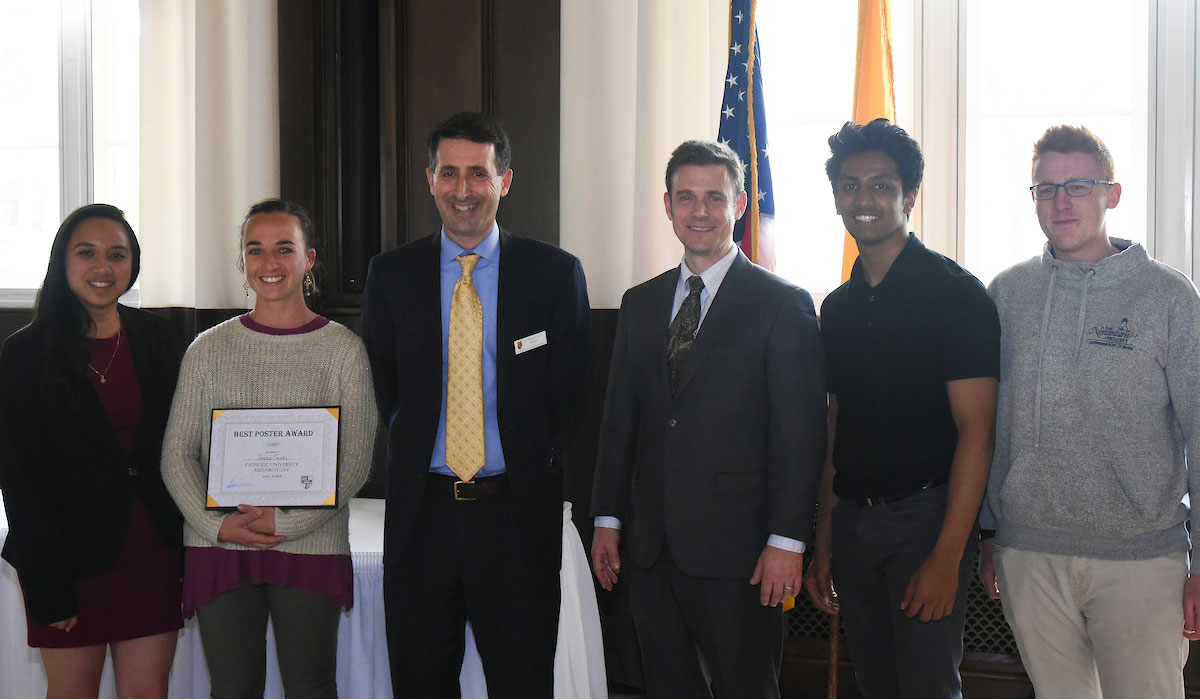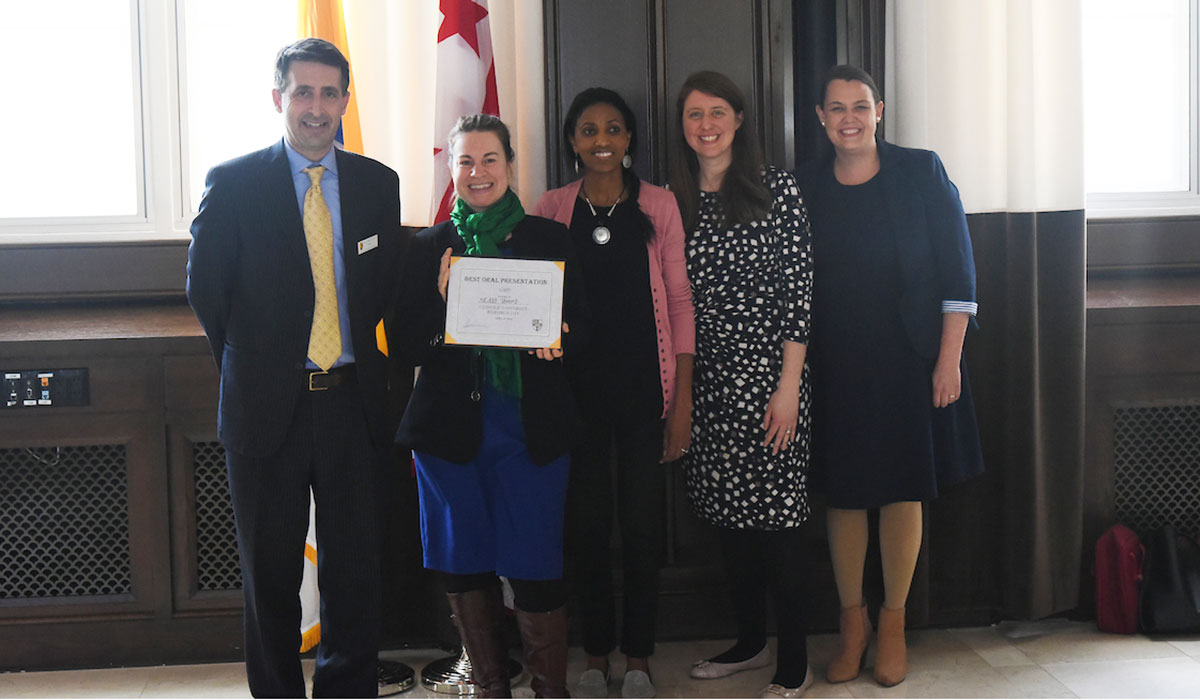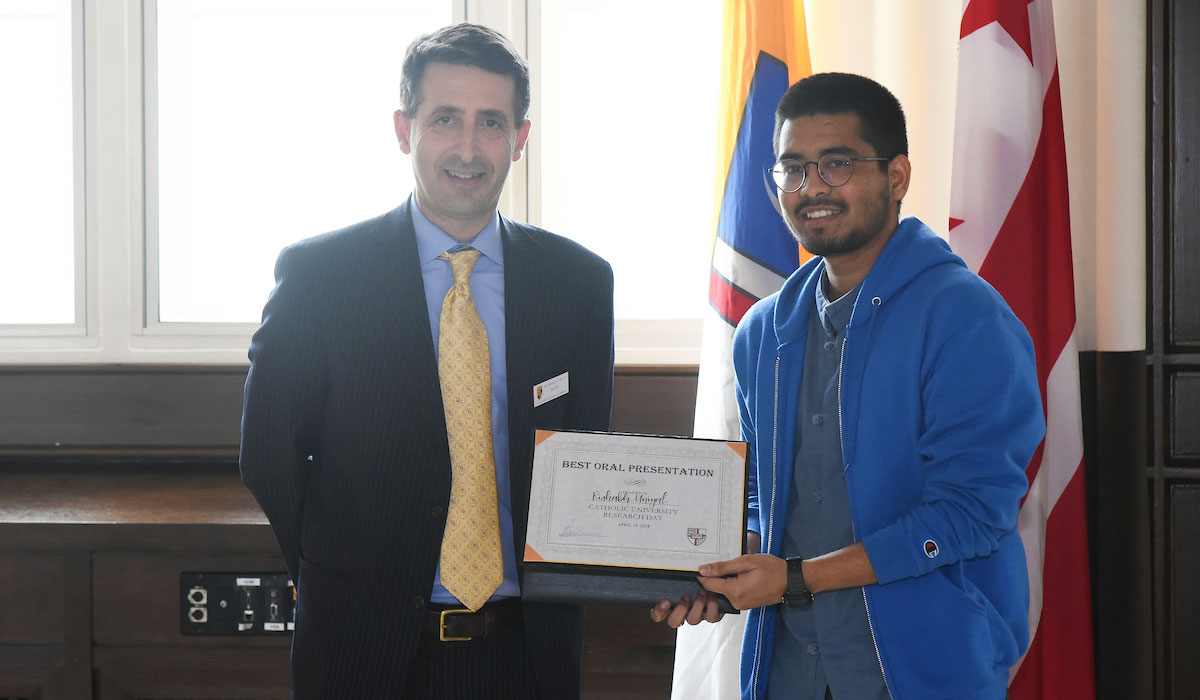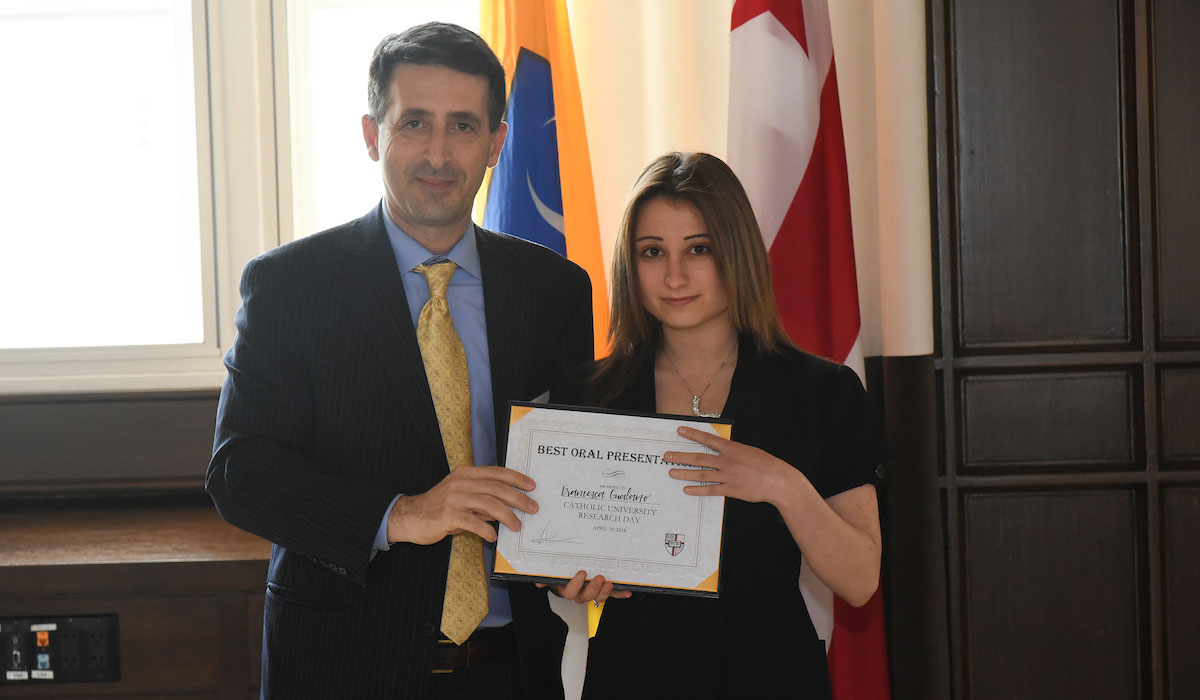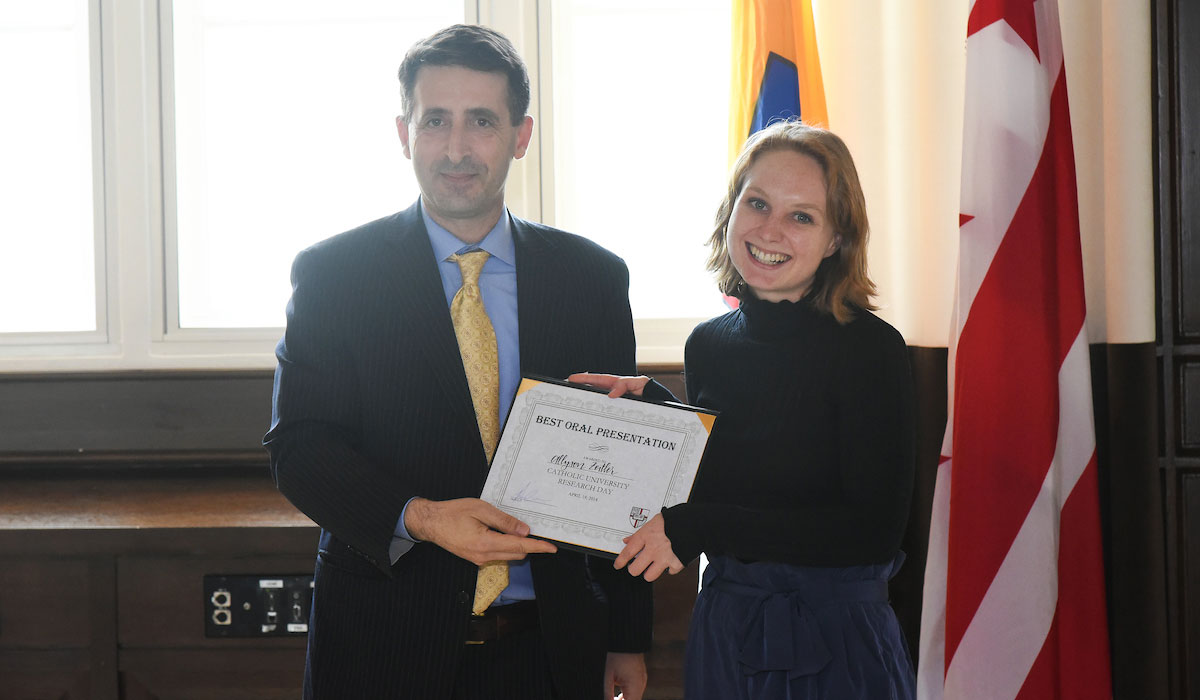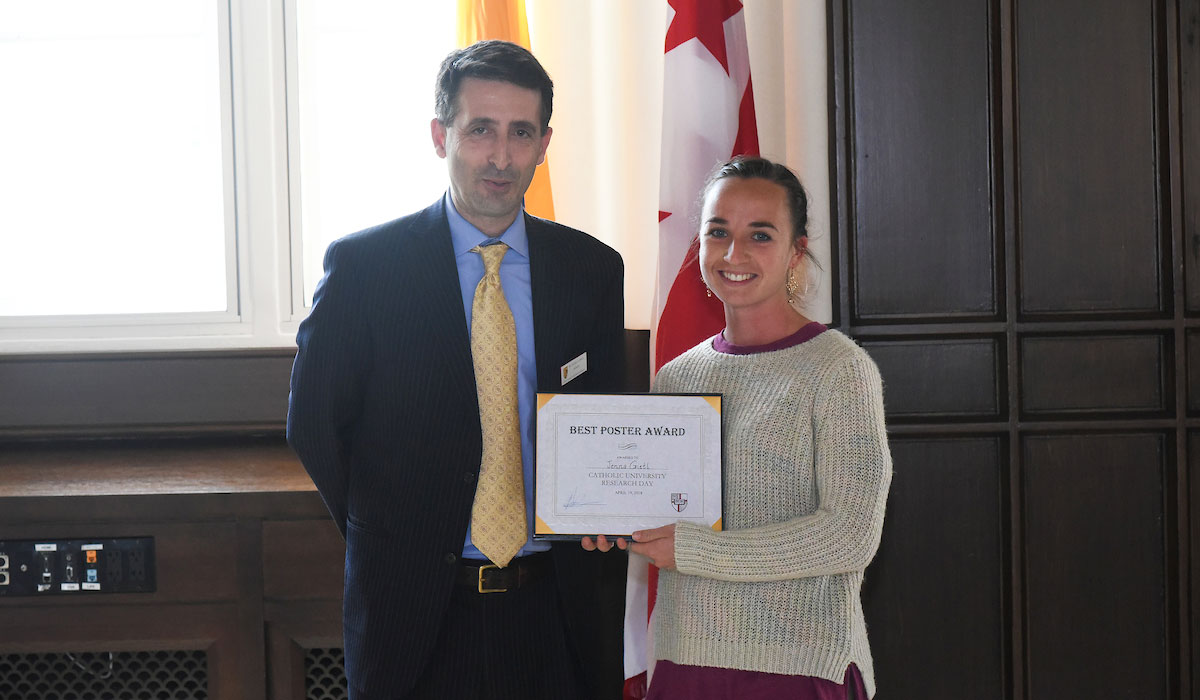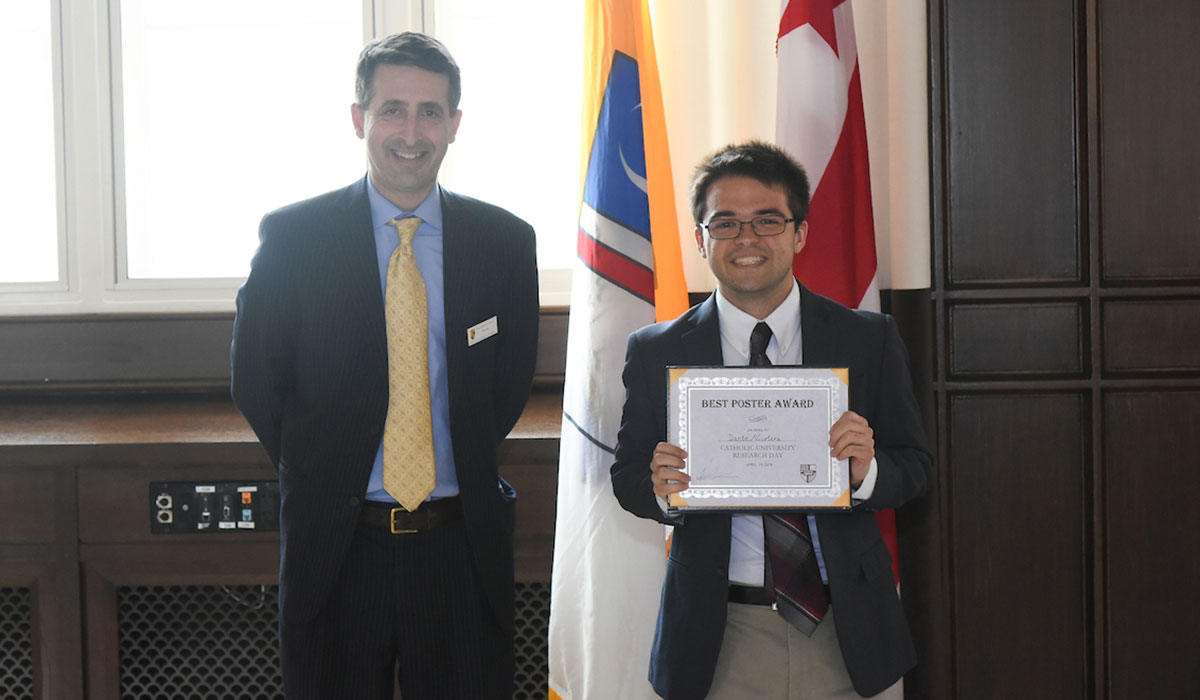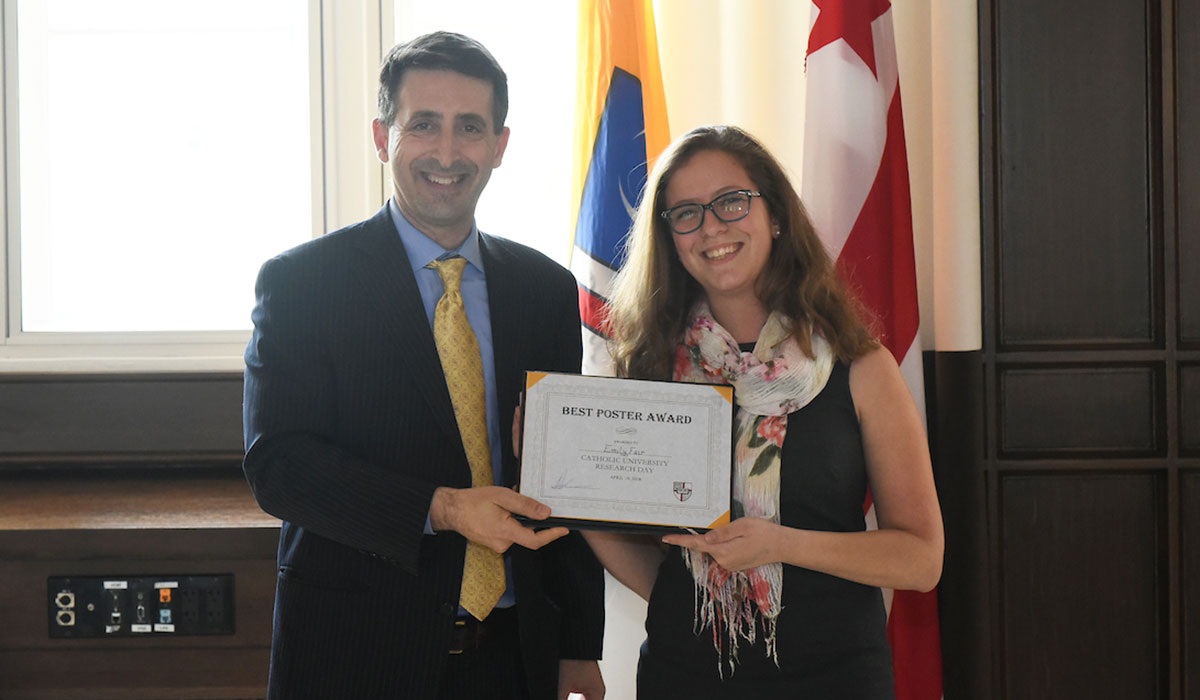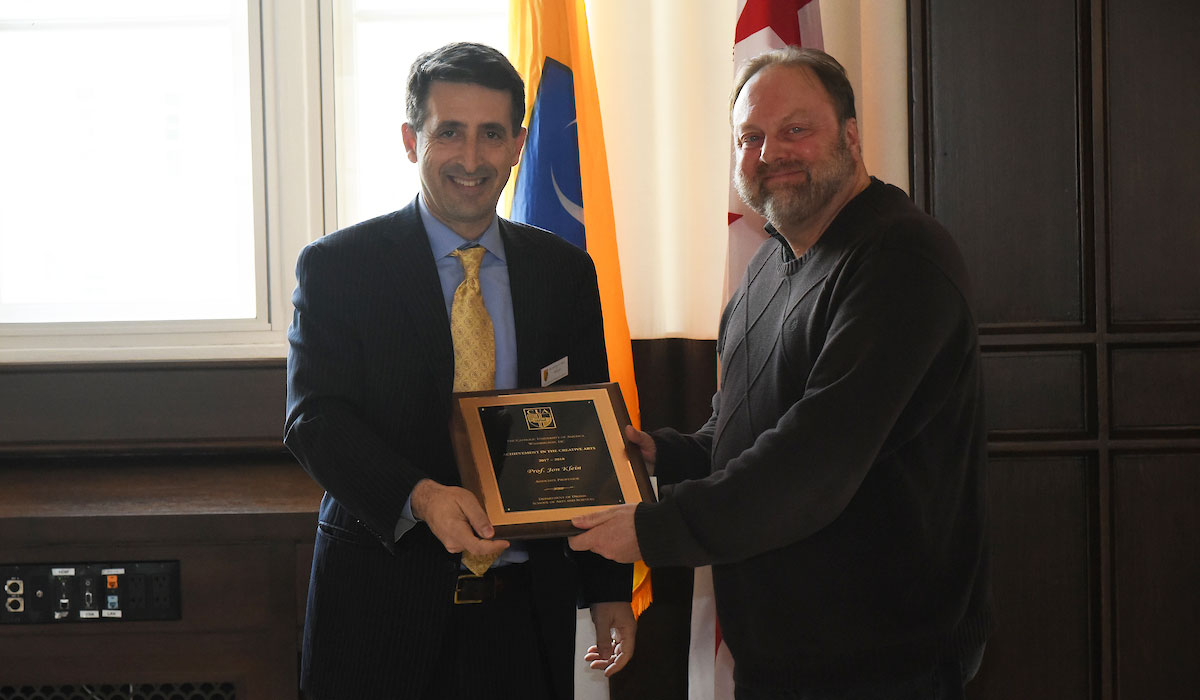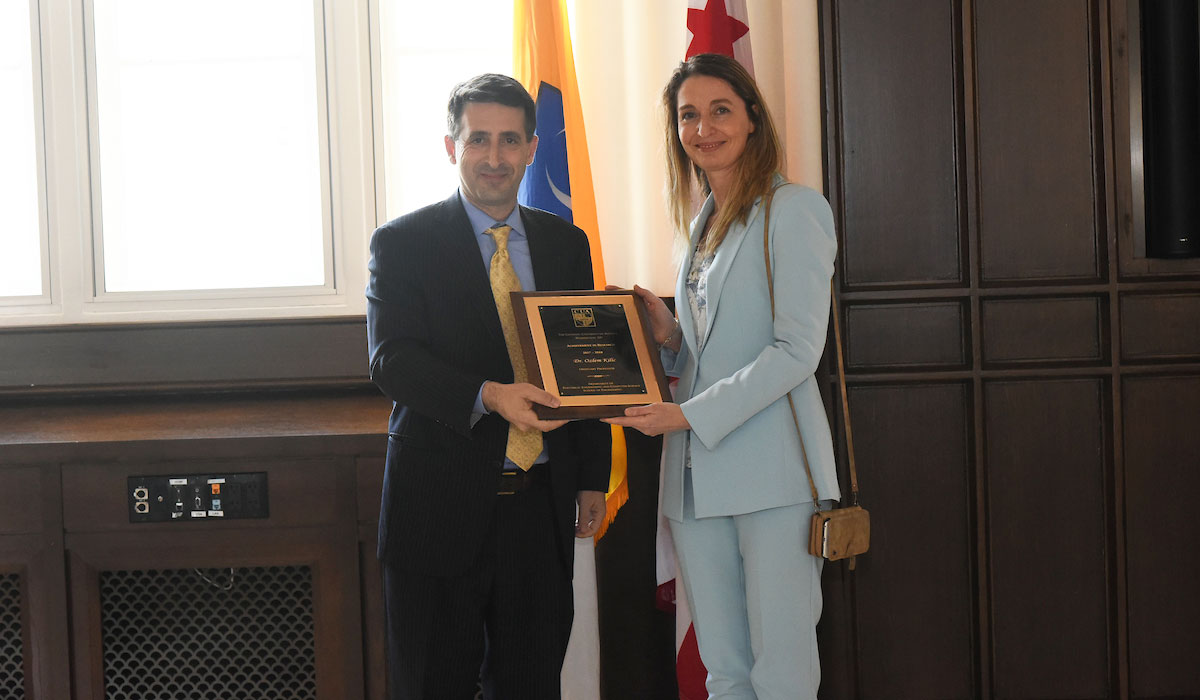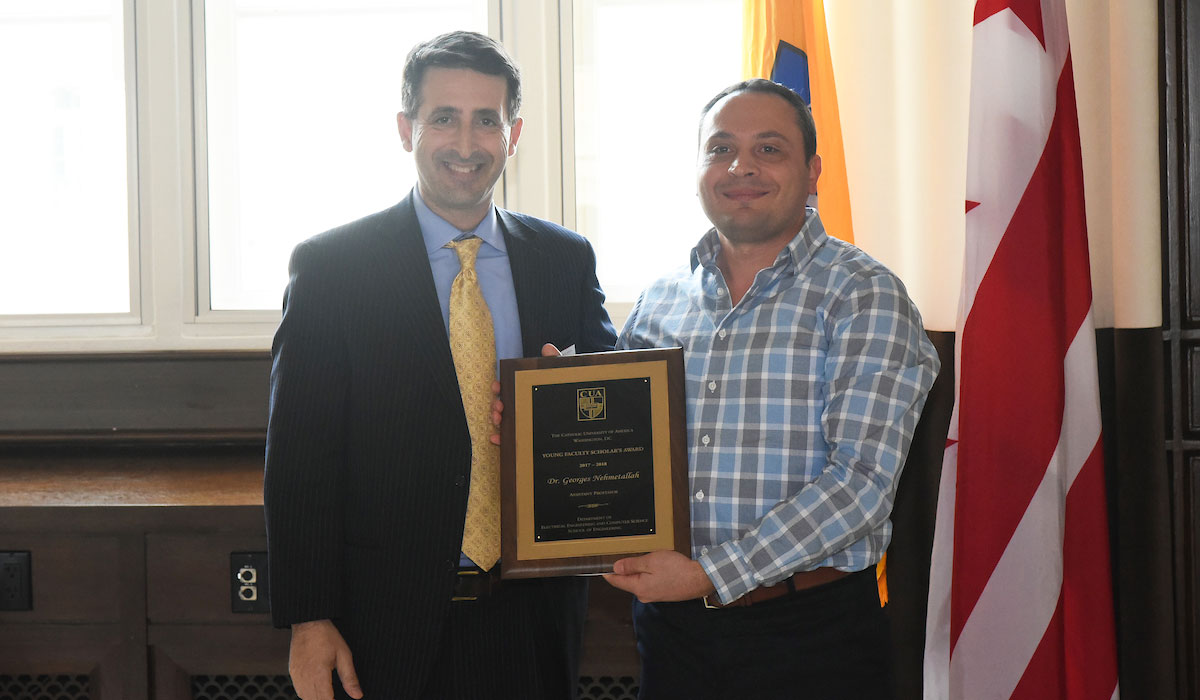
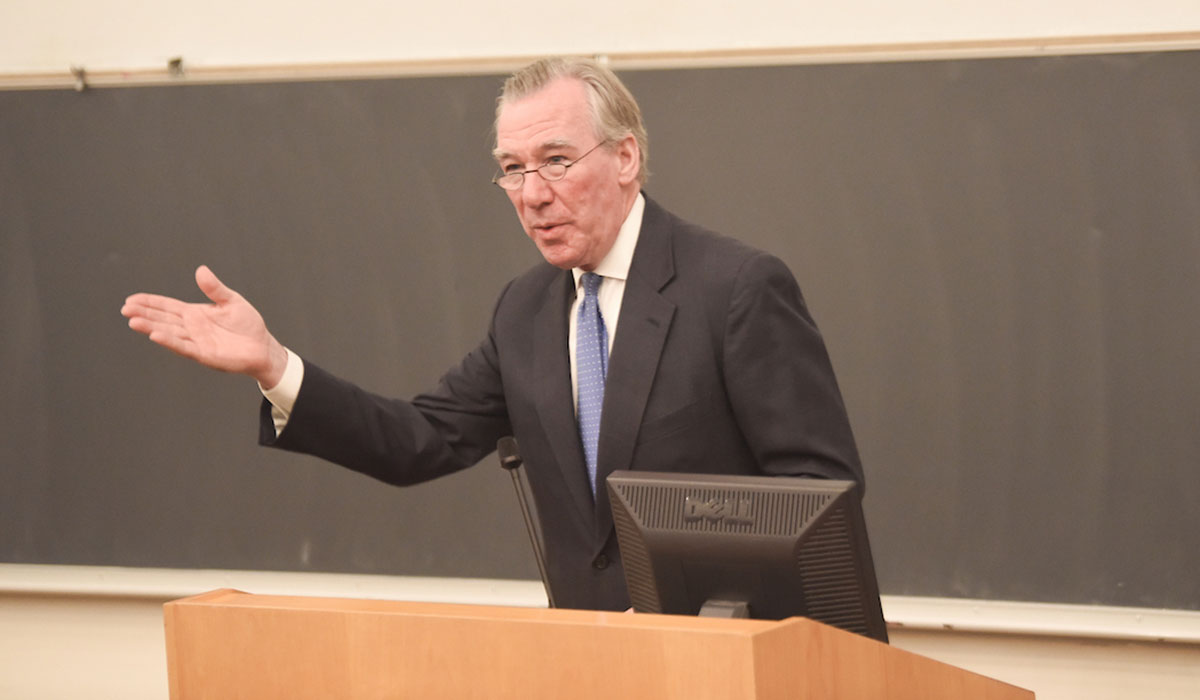
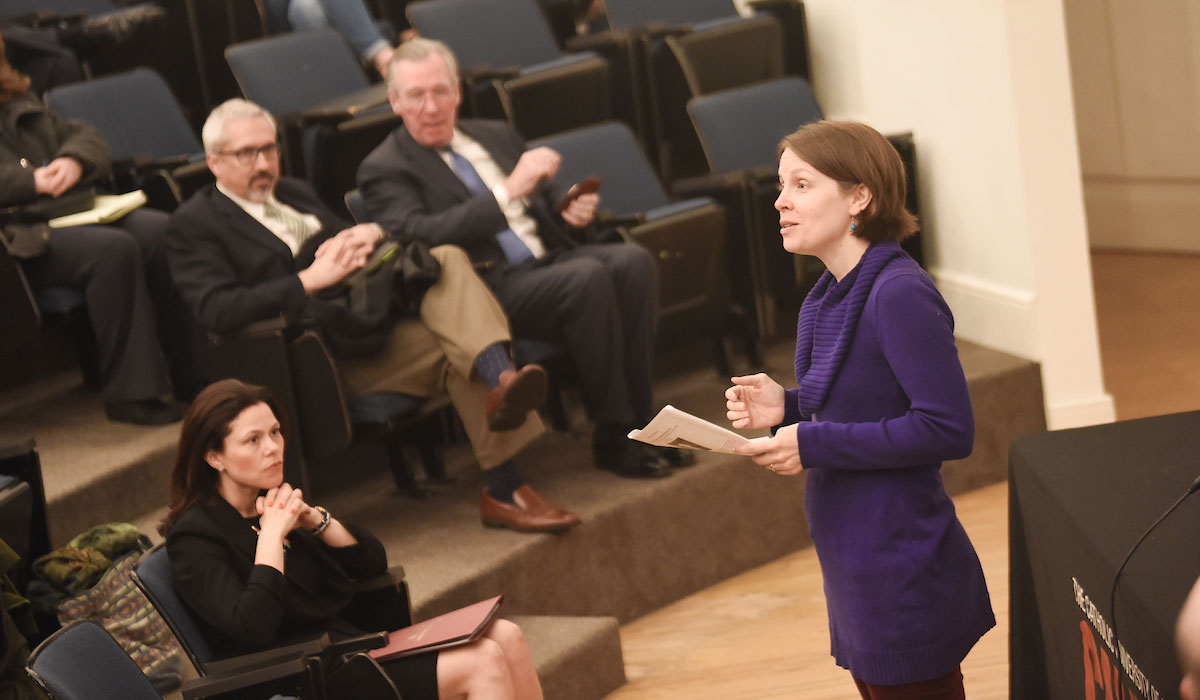
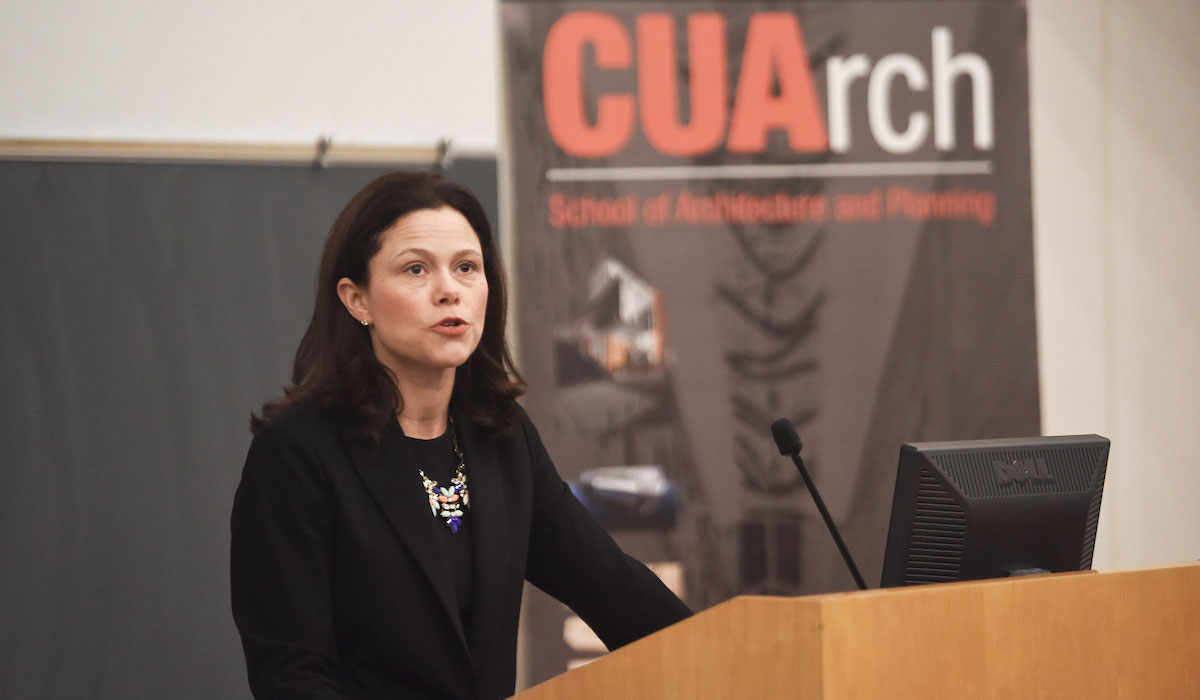
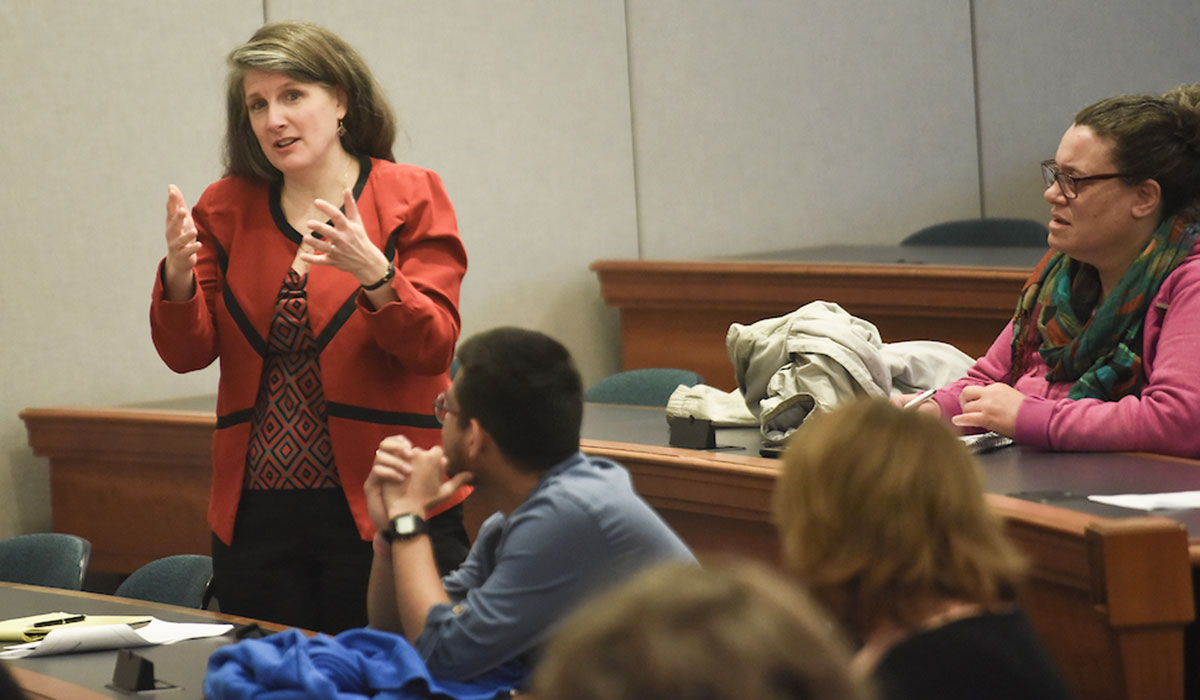
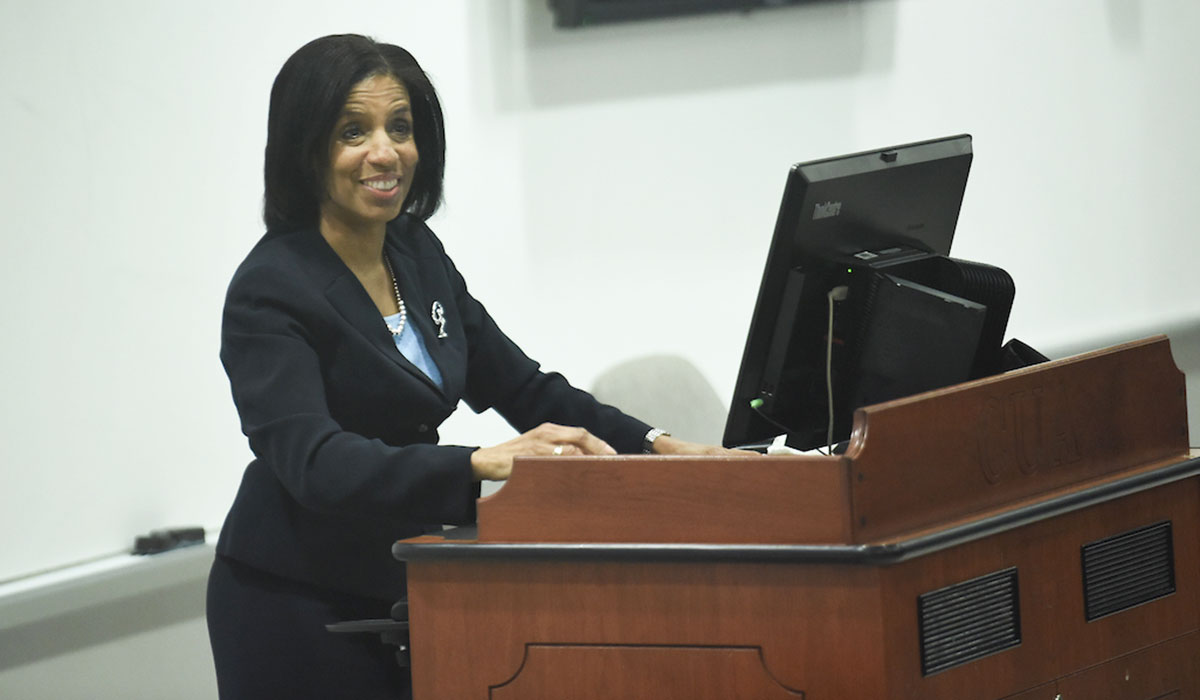
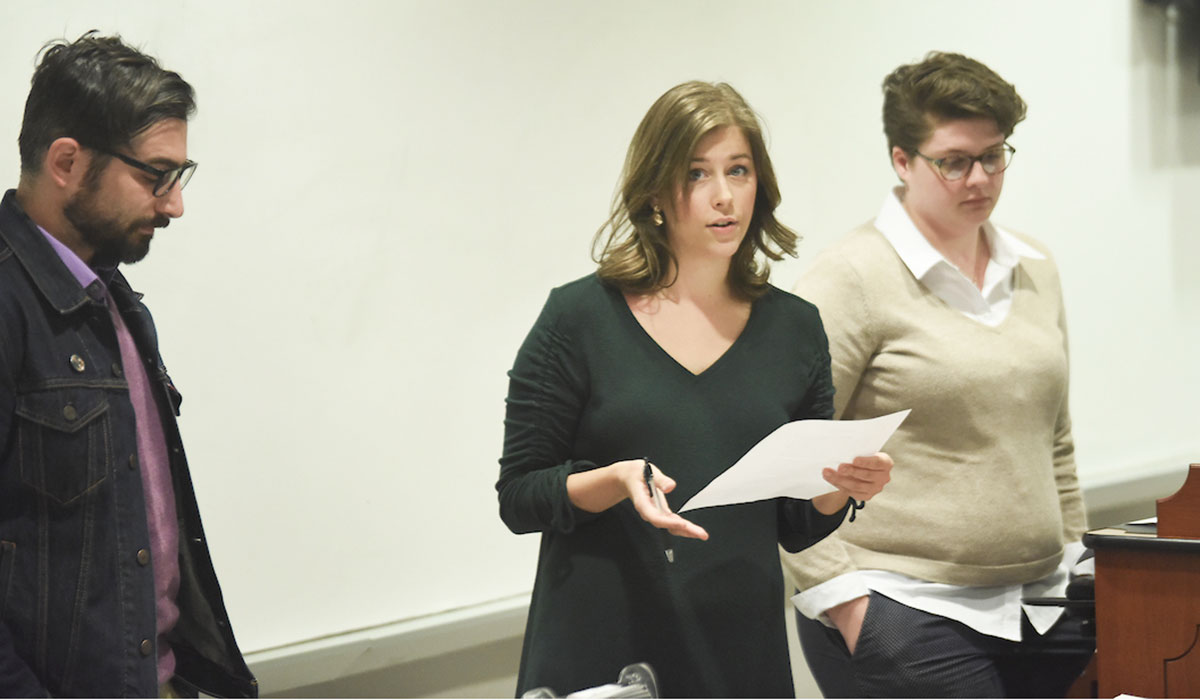
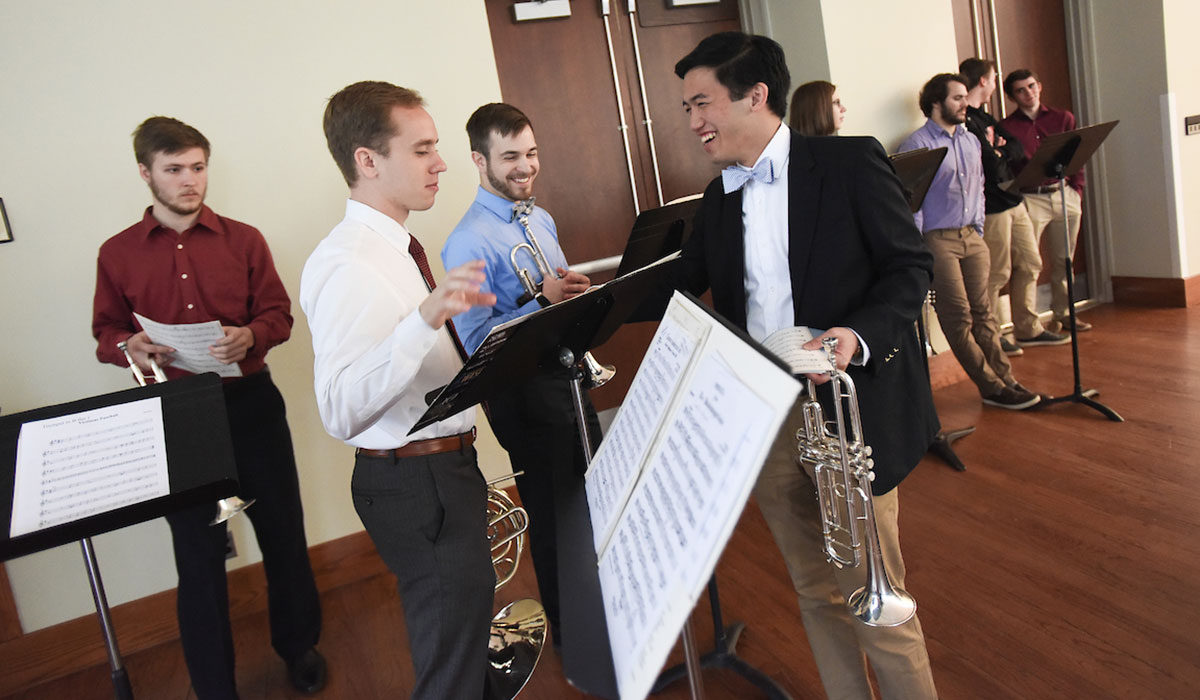
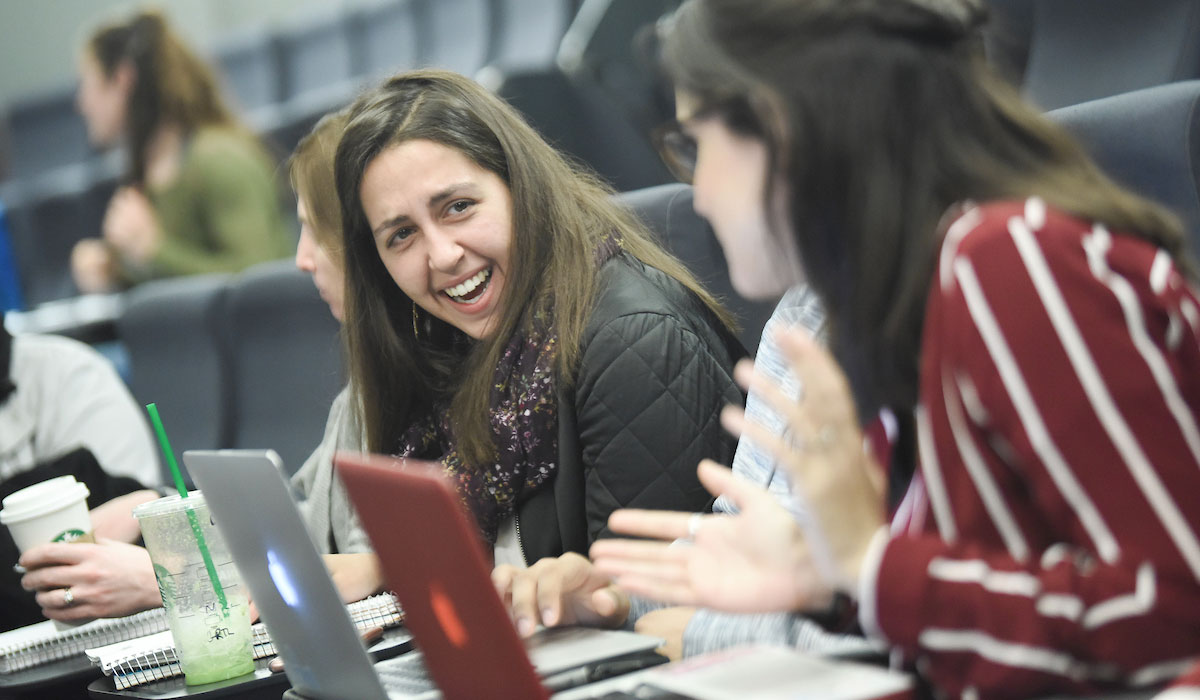
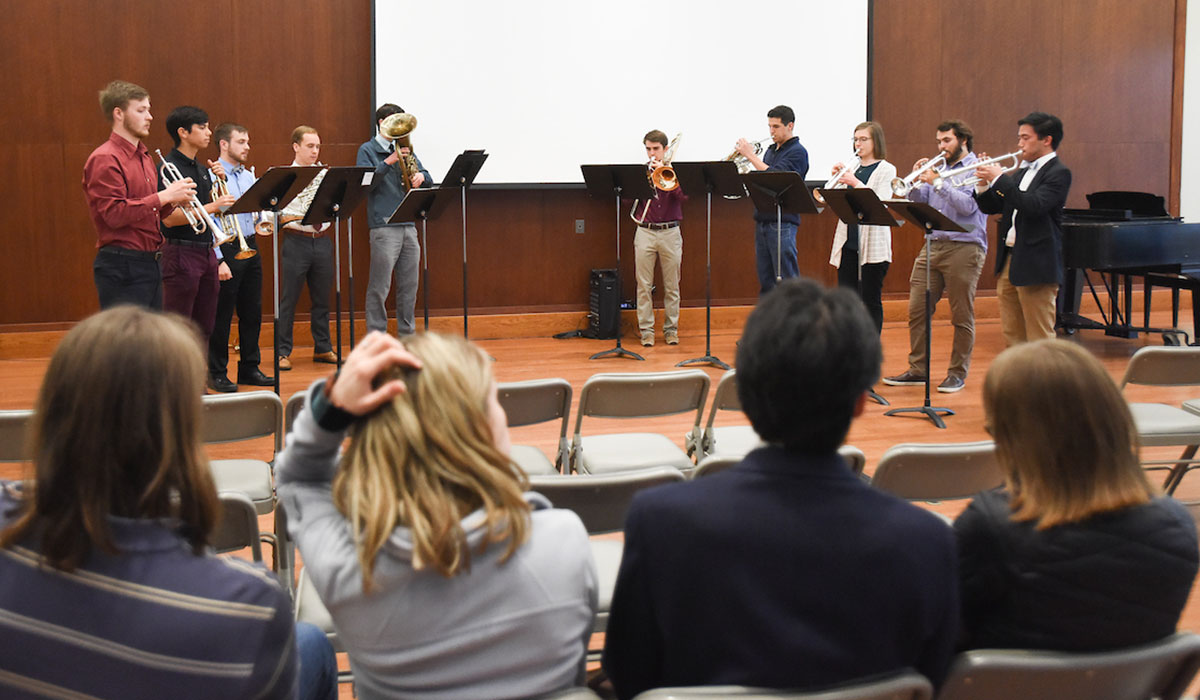
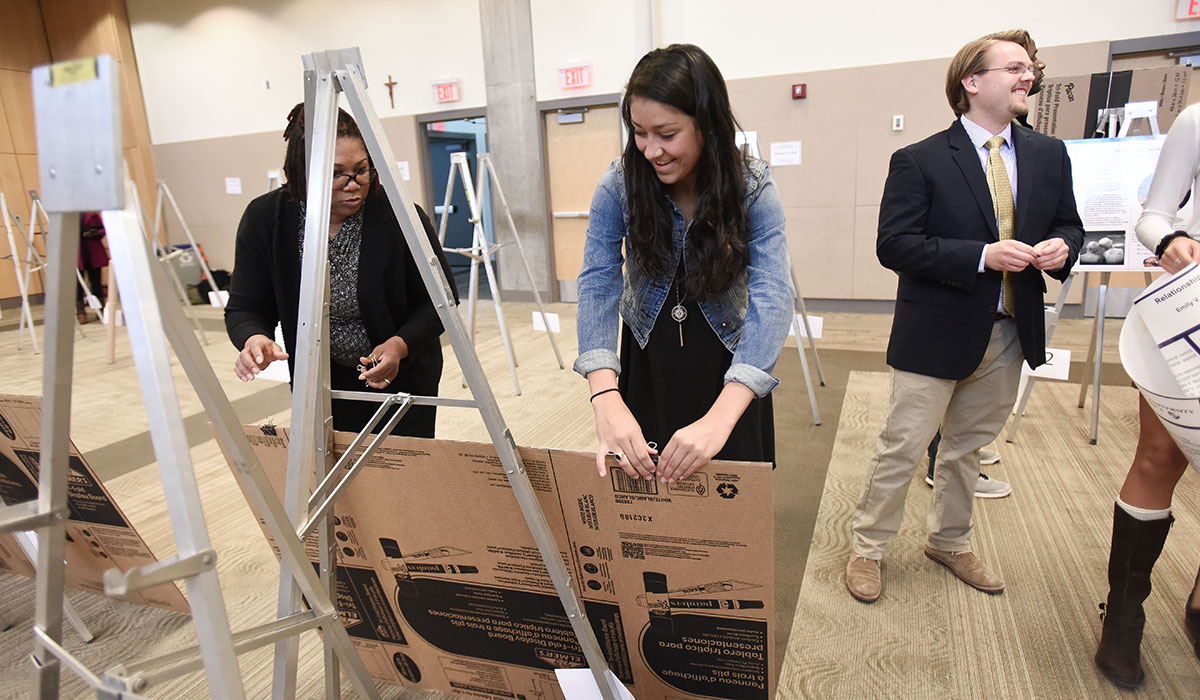
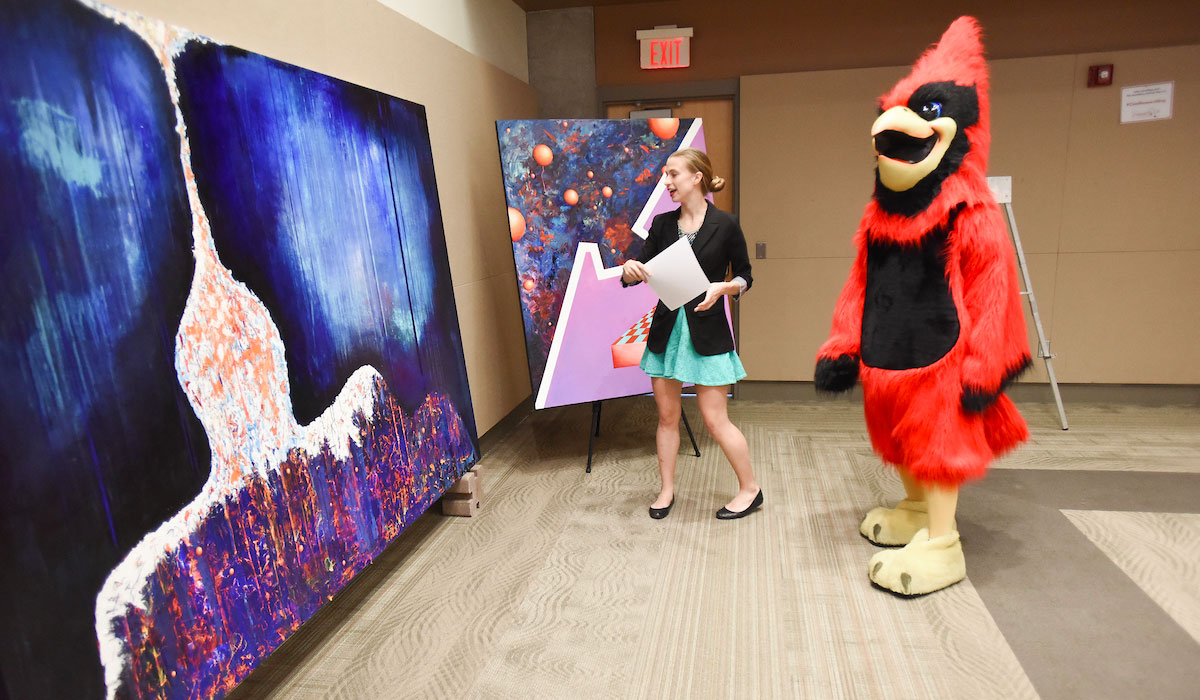
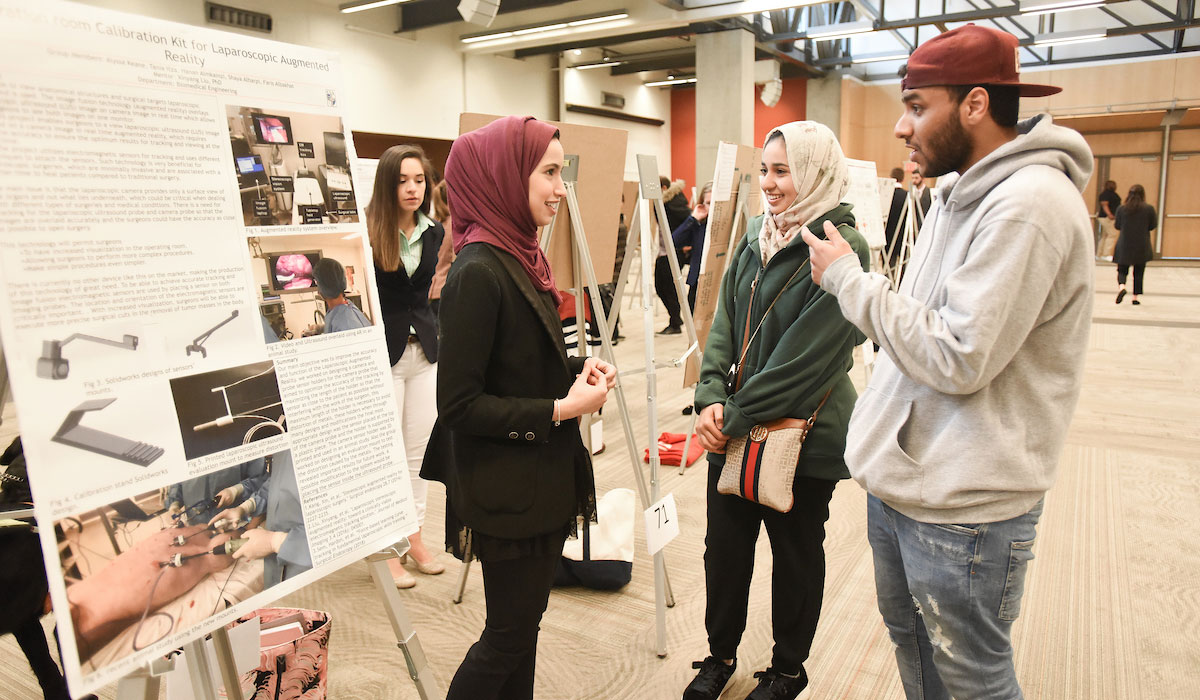
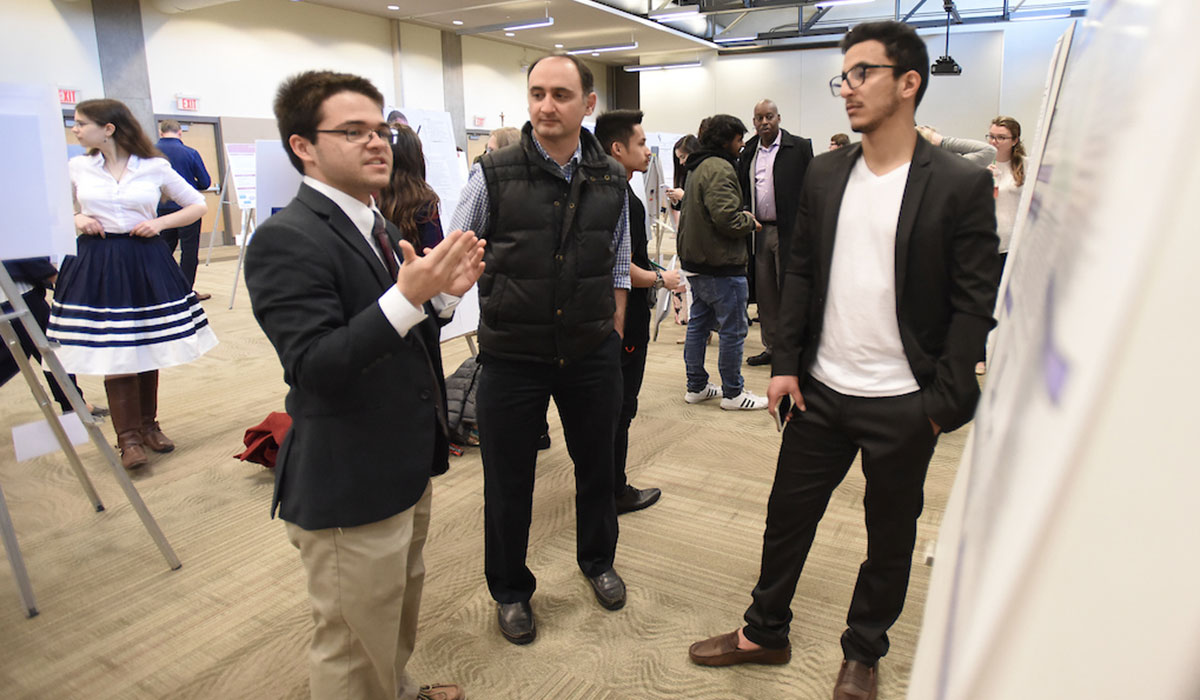
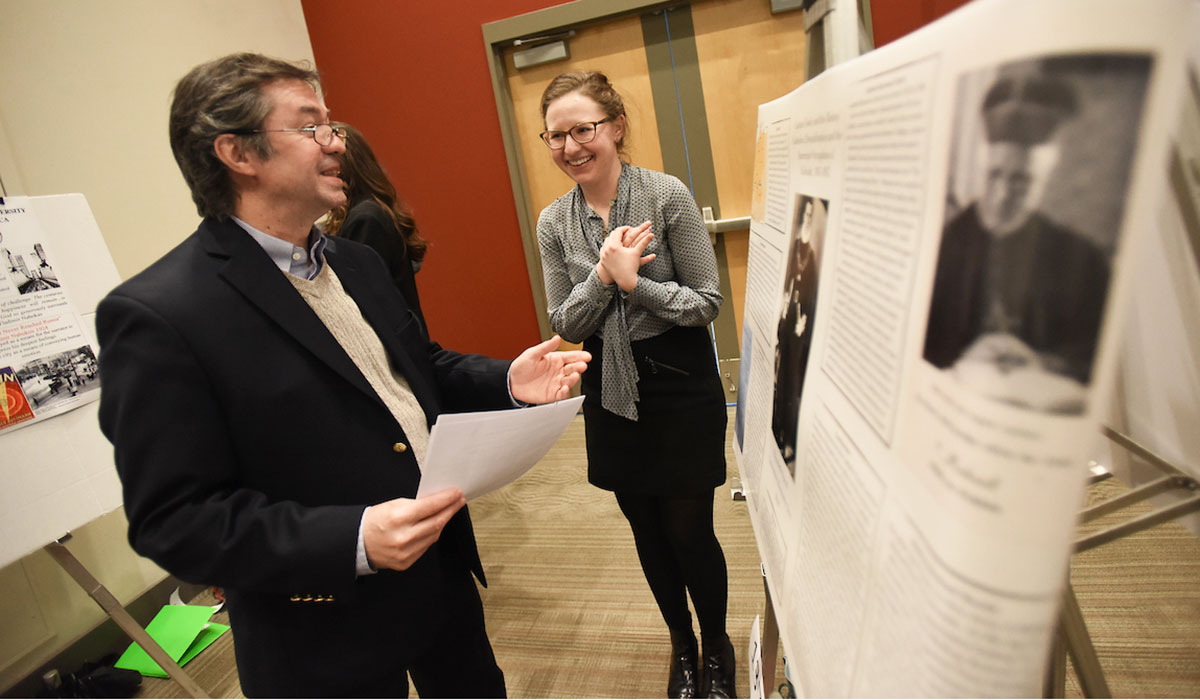
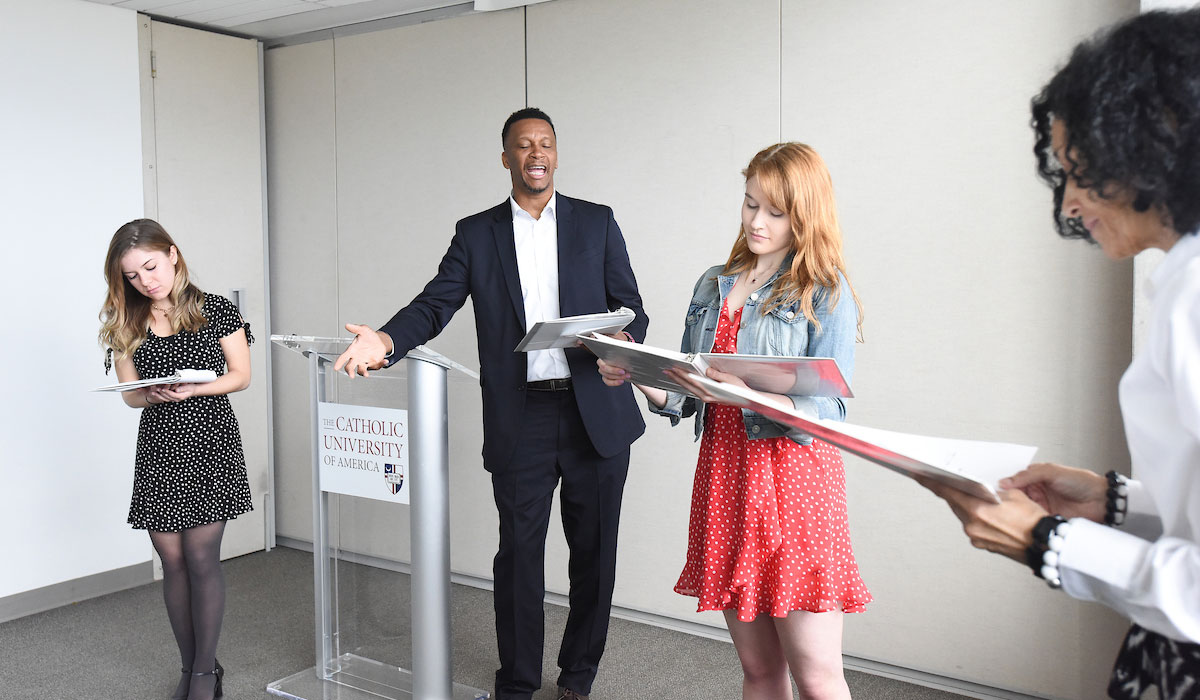
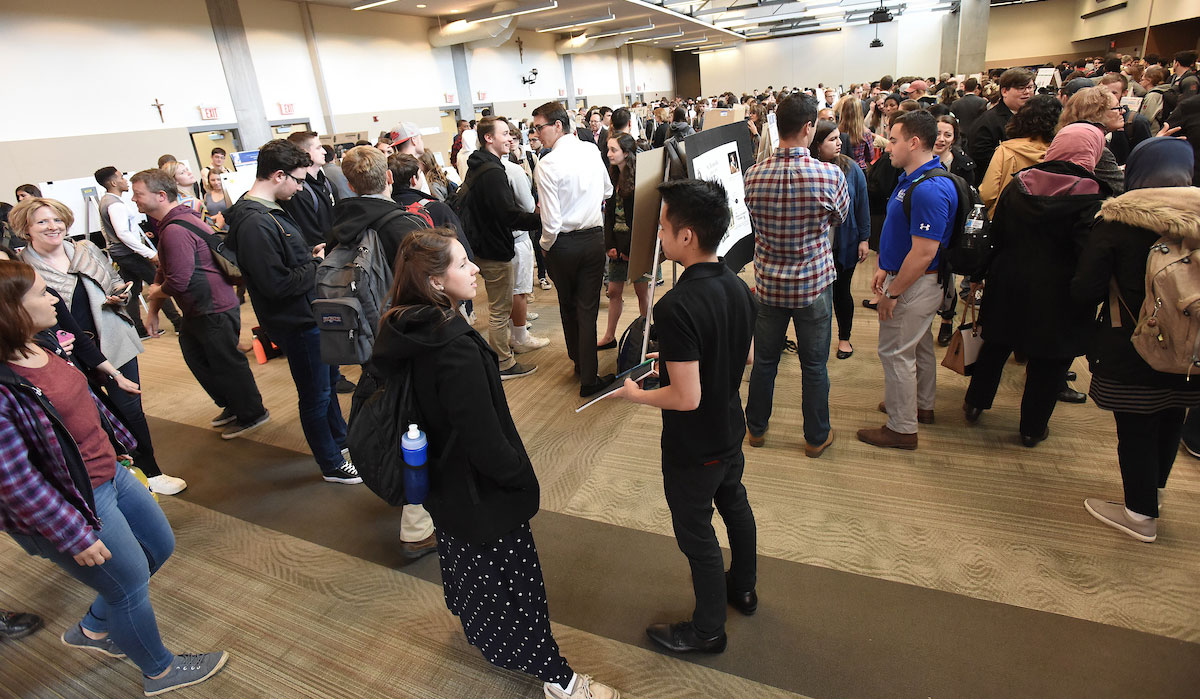
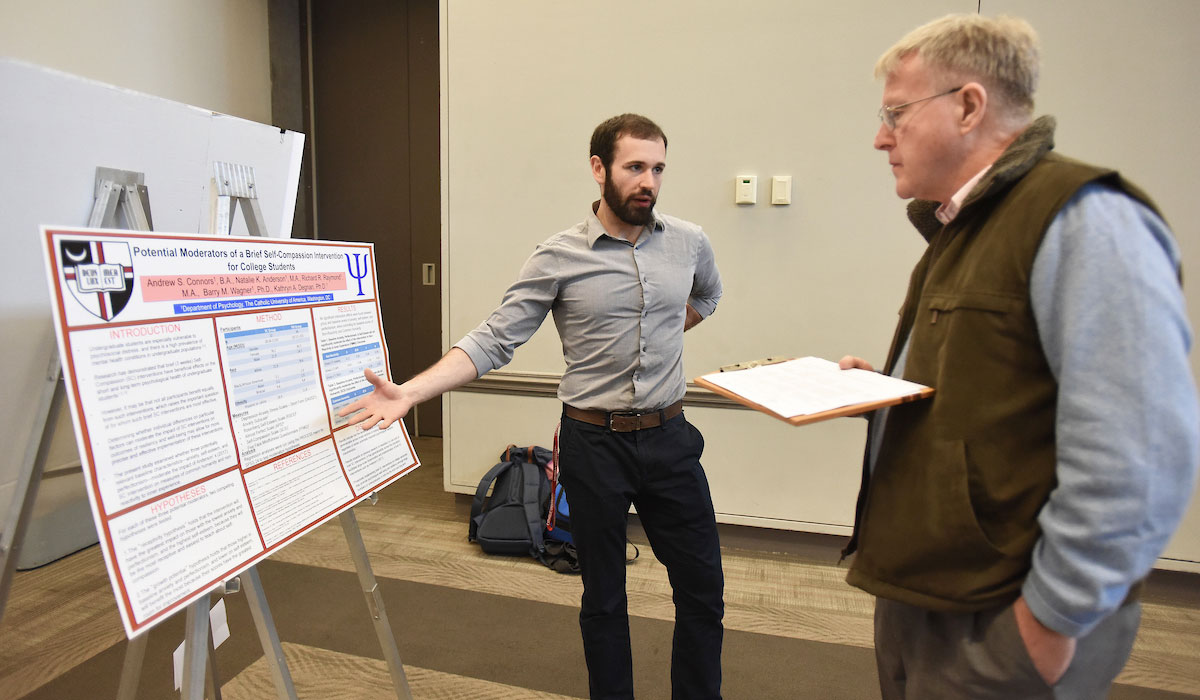
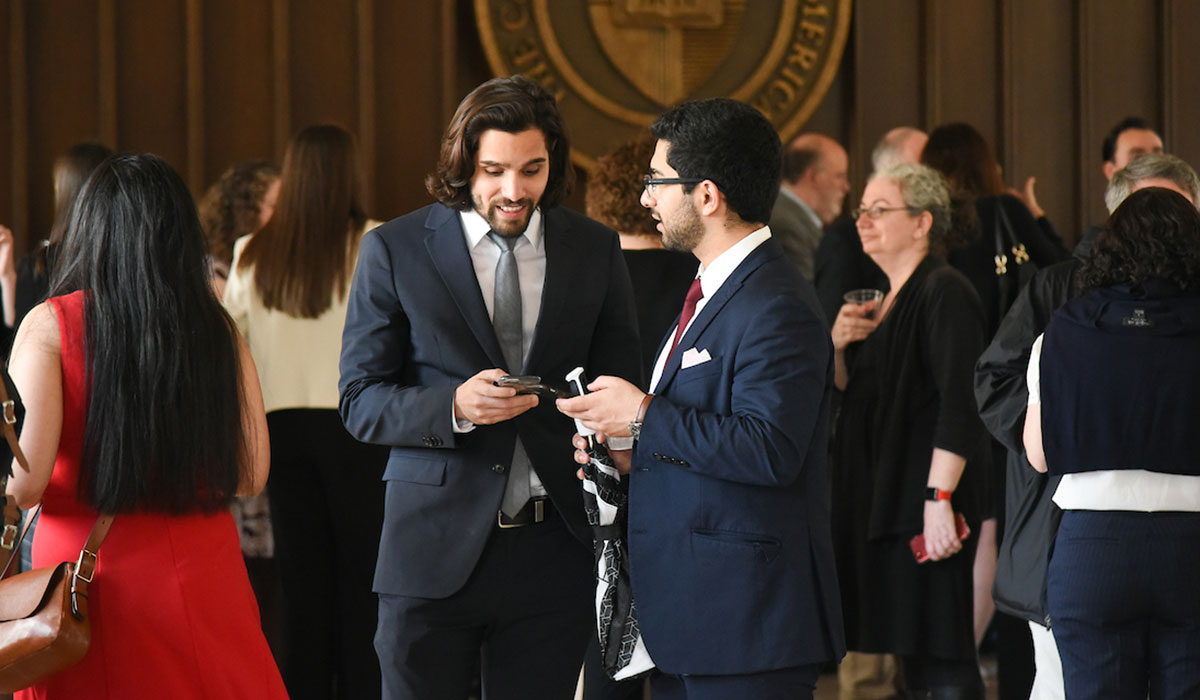
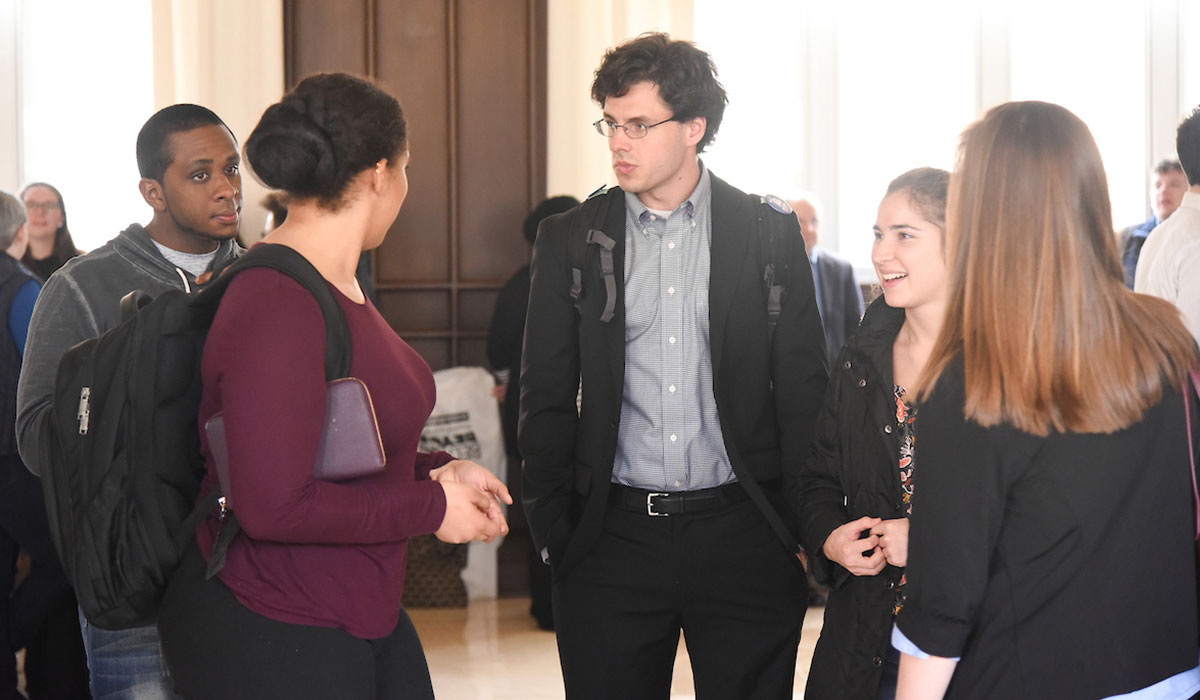
Standing before a crowd of students and faculty members in the Koubek Auditorium, law professor Cara Drinan shared real-life examples of how research can save lives and protect children, during an address titled “The War on Kids: How American Juvenile Justice Lost Its Way.”
Drinan, who researches mass incarceration and juvenile justice, was presenting her latest findings on the subject as the keynote speaker for the third annual University Research Day on April 19, a day-long event in which students, faculty, and staff members present their academic findings to the University community.
As part of her lecture, Drinan explained the specific laws that have resulted in a troubling number of juveniles being imprisoned in the United States. Though she admits that the criminal justice reform community has a tough challenge ahead, Drinan acknowledged the powerful research coming from the worlds of neuroscience, social science, economics, and law that will help change the lives of young people in danger of cruel and unusual sentencing.
“I invite you to join me in the process of generating research to promote the common good and I congratulate the many of you here today who have already embarked on that work,” she said.
Drinan’s lecture was just one of more than 250 presentations given during Research Day, covering a wide range of subjects, including gentrification, biomedical devices, American history, and particle physics. Classes were cancelled for the day, so students could attend presentations scattered around campus that represented all 12 of the University’s schools.
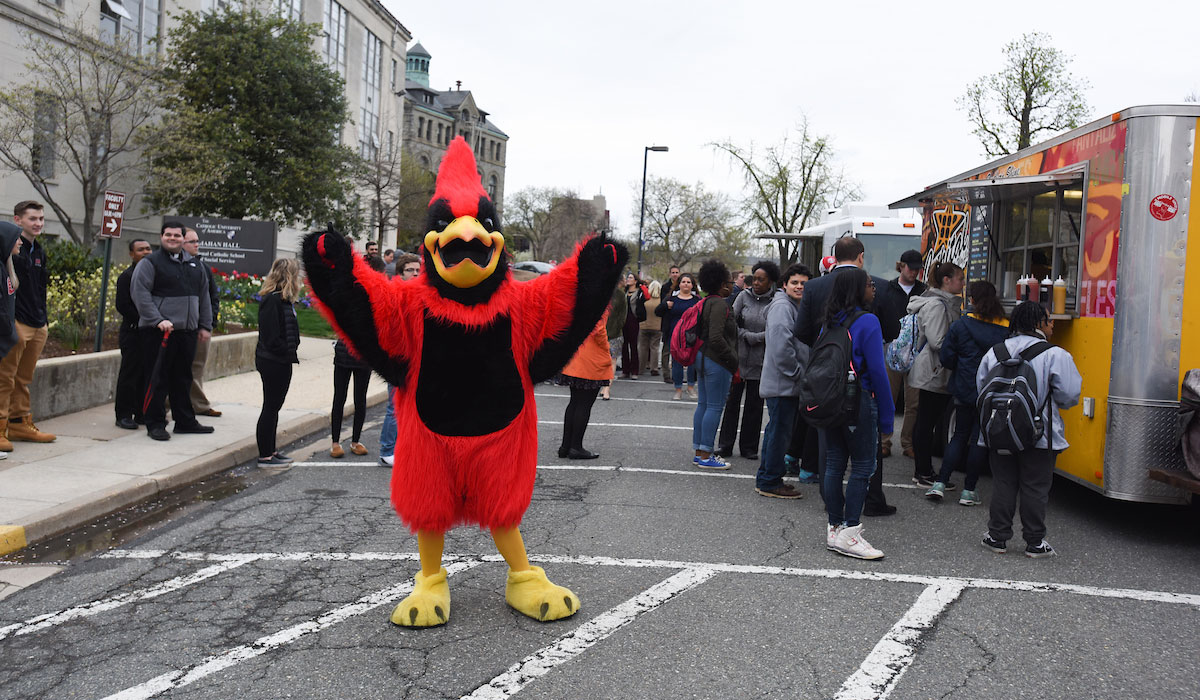
The day’s events also included student musical and drama performances and an art display exploring the relationship between physics and art. During the lunch hours, students had the opportunity to hear musical performances and purchase meals from a number of D.C. food trucks. The day concluded with an award ceremony recognizing the efforts of participating students and faculty members.
During his opening address, University President John Garvey said this year’s event drew a record number of presentation proposals — “far and away the biggest participation rate in the event’s history.” He also said the research reflected what makes Catholic University special.
“The scholarly work done at Catholic University is remarkably diverse,” he said. “But it is born from a shared conviction, one that inspired the founders of our University 131 years ago. We believe that men and women are created to find truth, goodness, and beauty in the world, in ourselves, and in God. We believe we should courageously seek them and generously share them.”
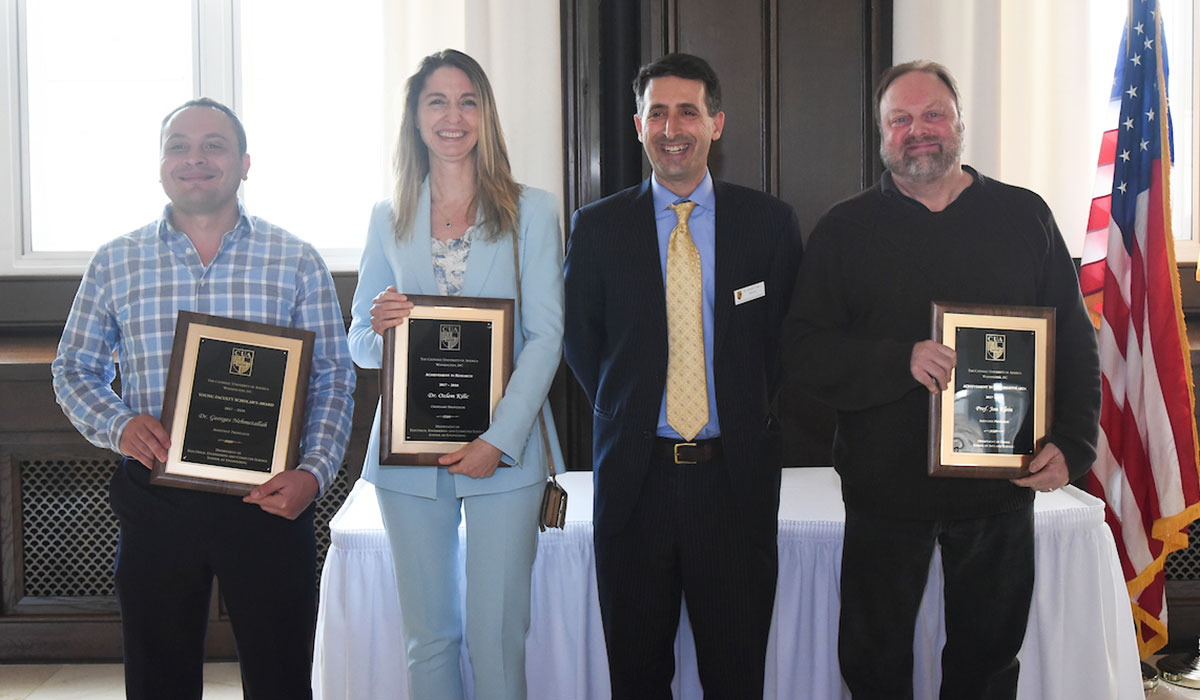
During a morning panel in the Herzfeld Auditorium, senior history major Allyson Zeitler gave a brief history of the Sanctuary movement in Arizona, a civil initiative movement which arose as a result of the Salvadoran Refugee Crisis from 1981 to 1989. Zeitler, who was later given an undergraduate research award for her presentation, said many of the themes she found in her research are reflected in our country’s current debates about Syrian refugees.
“What I found through this is that history kind of repeats itself,” she said. “We struggle as Americans to help these people because we fear what might be, but it’s important to note that America was founded on democratic principles of freedom and justice for all.”
More than 160 students and faculty members participated in the poster presentation sessions in the Edward J. Pryzbyla University Center Great Room, including Ali Gole, a senior international finance and economics major who shared her research surrounding the rates of organ donation around the world.
Gole chose her topic because her family has benefited from organ donation — her father was a heart recipient while she was in high school. She said she enjoyed being able to share her work with the greater community.
“I think Research Day gets people excited about the projects they’re working on,” she said. “I think it made me work a little bit harder knowing that I would be presenting it and sharing it with everyone here.”
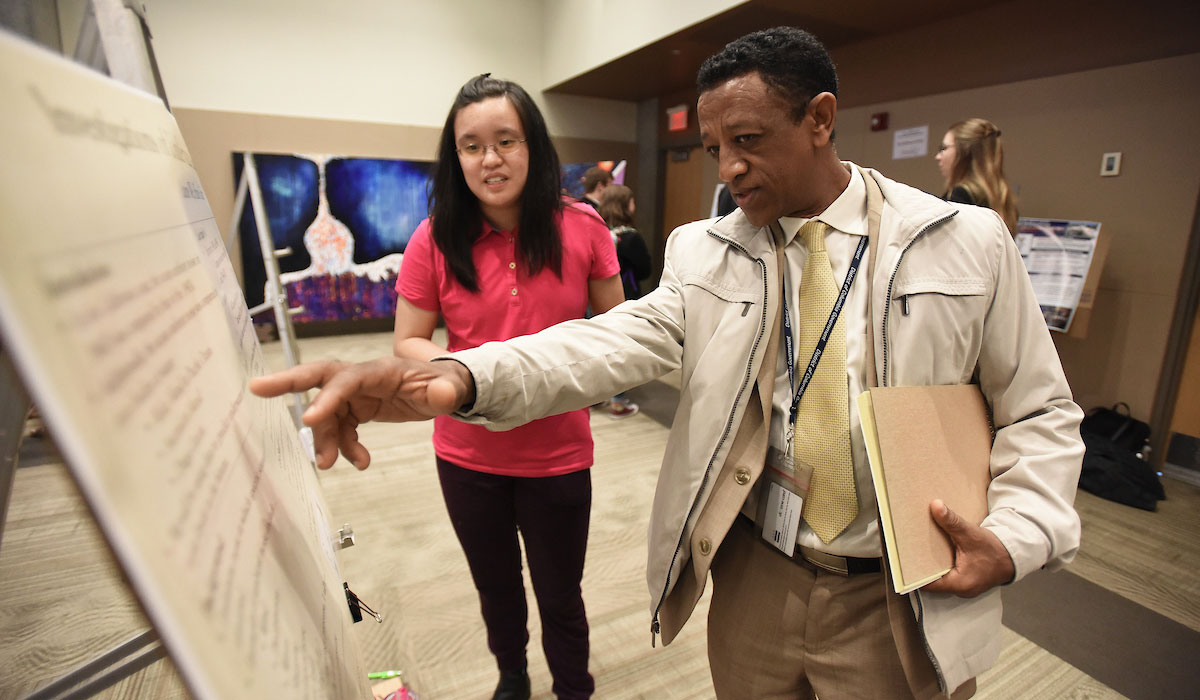
Clinical psychology doctoral student Andrew Connors shared a poster presentation on his work surrounding self-compassion training for people with varying levels of anxiety, perfectionism, and self-esteem. He said he enjoyed presenting at Research Day because it allowed him to meet new people and learn about the other research taking place on campus.
“I’m seeing research going on around me that I had no idea about,” he said.
Julianne Hyrcza, a senior education major, said she was thrilled to share her research about improving writing skills in fifth grade students. Hyrcza based her findings on her own experiences student teaching, where she spent five weeks giving focused writing instruction to students who were struggling. After exposing her students to writing conferences, creative writing exercises, and editing and revision training, she saw great improvements in their writing skills.
“I’m so happy to be able to present this because I had such a great experience,” Hyrcza said. “I would love to share what I’ve learned with as many people as I can just to show different strategies that teachers can use.”
While she enjoyed presenting her findings, Hyrcza said she also liked learning from her classmates and friends’ presentations.
“As an educator, I just feel so excited about learning new things,” she said. “I think it’s beautiful to see how many people came out for this and how many people want to share what they’ve learned.”
Watch Cara Drinan's keynote speech
